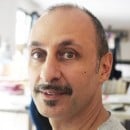Why don’t we all age in the same way? What is the secret of those people who reach “the third age” with a clear mind and are physically active? And what can we do to delay the effects of the passage of time?
Elizabeth Blackburn, molecular biologist and Nobel Prize winner for Medicine in 2009, together with Carol Greider and Jack Szostak, addresses these difficult questions in her research and puts forward some unexpected and surprising answers.
According to Blackburn, the aging of humans is determined by telomeres, which are small portions of DNA that line the end parts of chromosomes and perform the function of protecting them against the deterioration of genetic material.
Every time the cell divides and the DNA is copied, a part of that DNA at the ends is consumed and shortened. Telomeres can be thought of as a protective band at the end of the strings, and they prevent the string or chromosomes from fraying. When this tip becomes too short and falls off, the consumed telomere sends a signal to the cells: the DNA is no longer protected.
With the passage of time, telomeres inevitably tend to shorten, and it is this reduction that makes us age and exposes us to the risk of cardiovascular diseases, Alzheimer’s disease, some types of cancer and diabetes.
However, the speed with which telomeres are reduced is not constant and the same for everyone. It changes from one person to another. What is the determining factor?
What brought Blackburn onto the right path to answer this crucial question was another question that was put to her by health psychologist Elissa Epel, who one day came into her laboratory and asked her: “What happens to telomeres in chronically stressed people?”
The two scientists got down to work and discovered a surprising fact: telomeres reduce their length with a speed that depends not only on genetic factors, but also on the person’s mental balance and lifestyle.
We had discovered something never heard of before: the more you are under chronic stress, the shorter are your telomeres, which means a greater probability of reaching the period of illness sooner and perhaps a premature death. Our discoveries meant that events in the life of people and how they respond to these events can change the way we maintain telomeres.
There are also people who can resist the negative effects of stress: they are the ones who experience difficulties not as a threat, but as a stimulating challenge. This led to a very important insight: “We have more control over the aging process than we ever imagined.” This intuition was later confirmed by thousands of scientists and in over 10,000 scientific reports.
Our lifestyle can induce telomeres to speed up the cellular aging process, but also to slow it down. How we eat, how we react to emotional problems, how much exercise we do, how much we are exposed to stress in childhood, and also how peaceful or turbulent the environment we live in is are all factors that, added to others, influence telomeres and prevent or accelerate cellular aging.
What does all this tell us? That I have the power to exercise an impact on my own telomeres and on yours too. The science of telomeres has shown us just how much we are all tied to each other.

